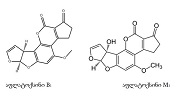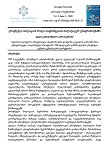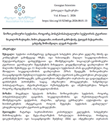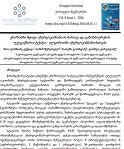Analysis of Fire Development in a Road Tunnel Equipped with Transformable Elements by Using Numerical Modeling Method
Downloads
Funding data
-
Shota Rustaveli National Science Foundation
Grant numbers AR-19-1936
As it is known, in case of strong fires initiated and developed in road tunnels with properly functioning longitudinal ventilation systems, at some moment, the air flows induced by mechanical ventilation can no longer affect the traction forces and flows formed as a result of combustion. Consequently, the smoke formation in the air on both sides of the tunnel is so intense that the environment becomes practically unsuitable for human life. In case of such a fire scenario, the only way to save people from the emergency is well-organized and timely self-evacuation from the dangerous environment [1]. The success depends on the duration of self-evacuation. Naturally, the longer the evacuation time is, the more the chances of saving the people are. In this case, the efficient use of flexible elements of transformable systems (flexible ventilation fire-proof barriers) allows significantly prolonging the evacuation time.
Downloads
Lanchava O., Abashidze G., Tsverava D. (2017) Securing fire safety for underground structures. Quality-Access to Success 18 (S1), 47-50.
Lanchava O., Ilias N., Nozadze G., Radu S.M., Moraru R.I., Khokerashvili Z., Arudashvili N. (2019) FDS Modelling of the Piston Effect in Subway Tunnels. Environmental Engineering and Management Journal 18 (4), 317-325.
Lanchava O., Ilias N., Nozadze G., Radu S.M., Moraru R.I., Khokerashvili Z., Arudashvili N. (2017) The impact of the piston effect on the technological characteristics of ventilation in subway tunnels. Proceedings of 8th International Symposium “Occupational Health and Safety”, SESAM, 342-352.
Lanchava O., Ilias N. (2018) Complex calculation method of temperature, mass transfer potential and relative humidity for ventilation flow in subway. Technical Sciences 3 (1), 69-84.

This work is licensed under a Creative Commons Attribution-NonCommercial-NoDerivatives 4.0 International License.


























































































































































































































